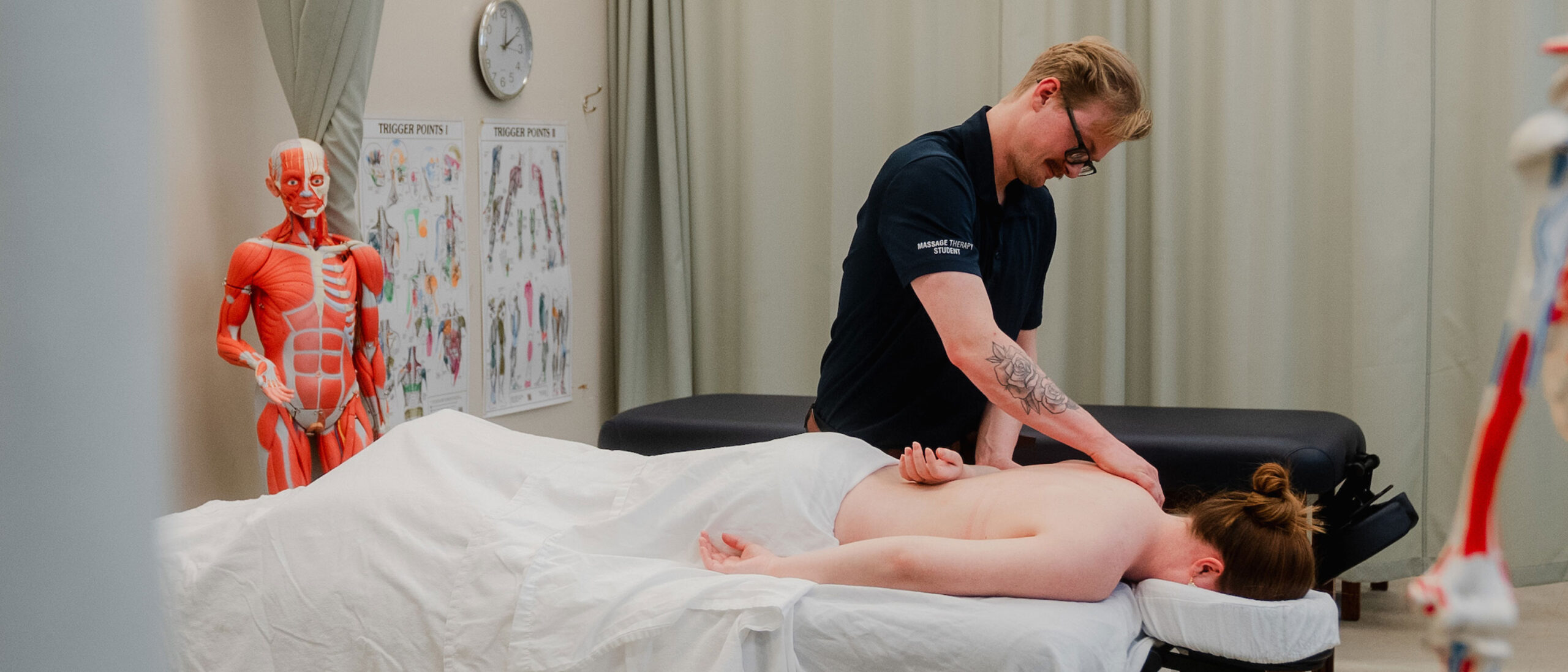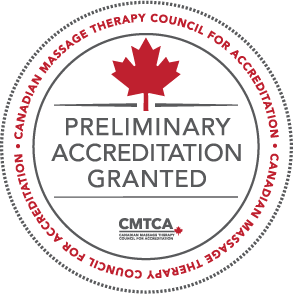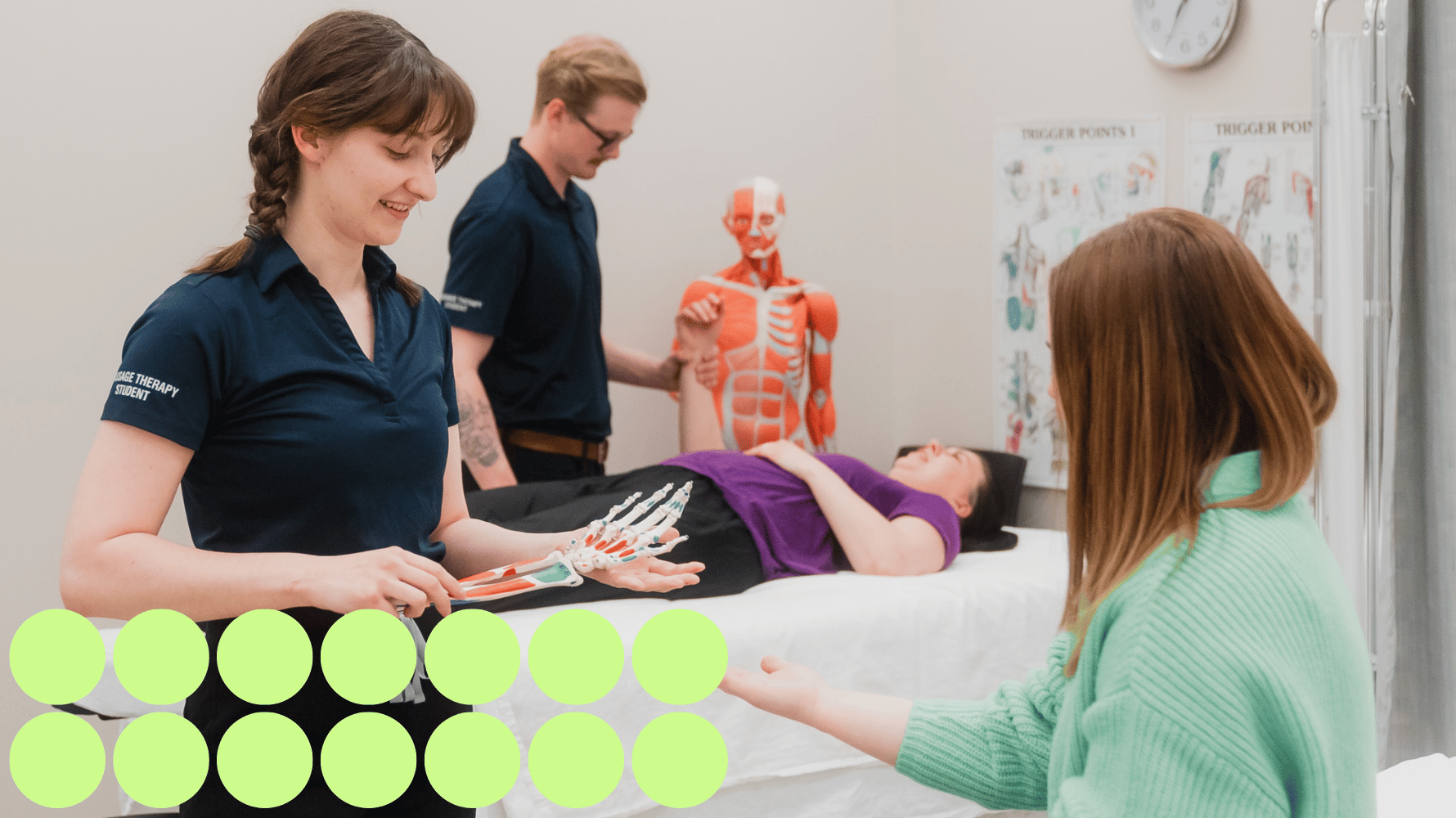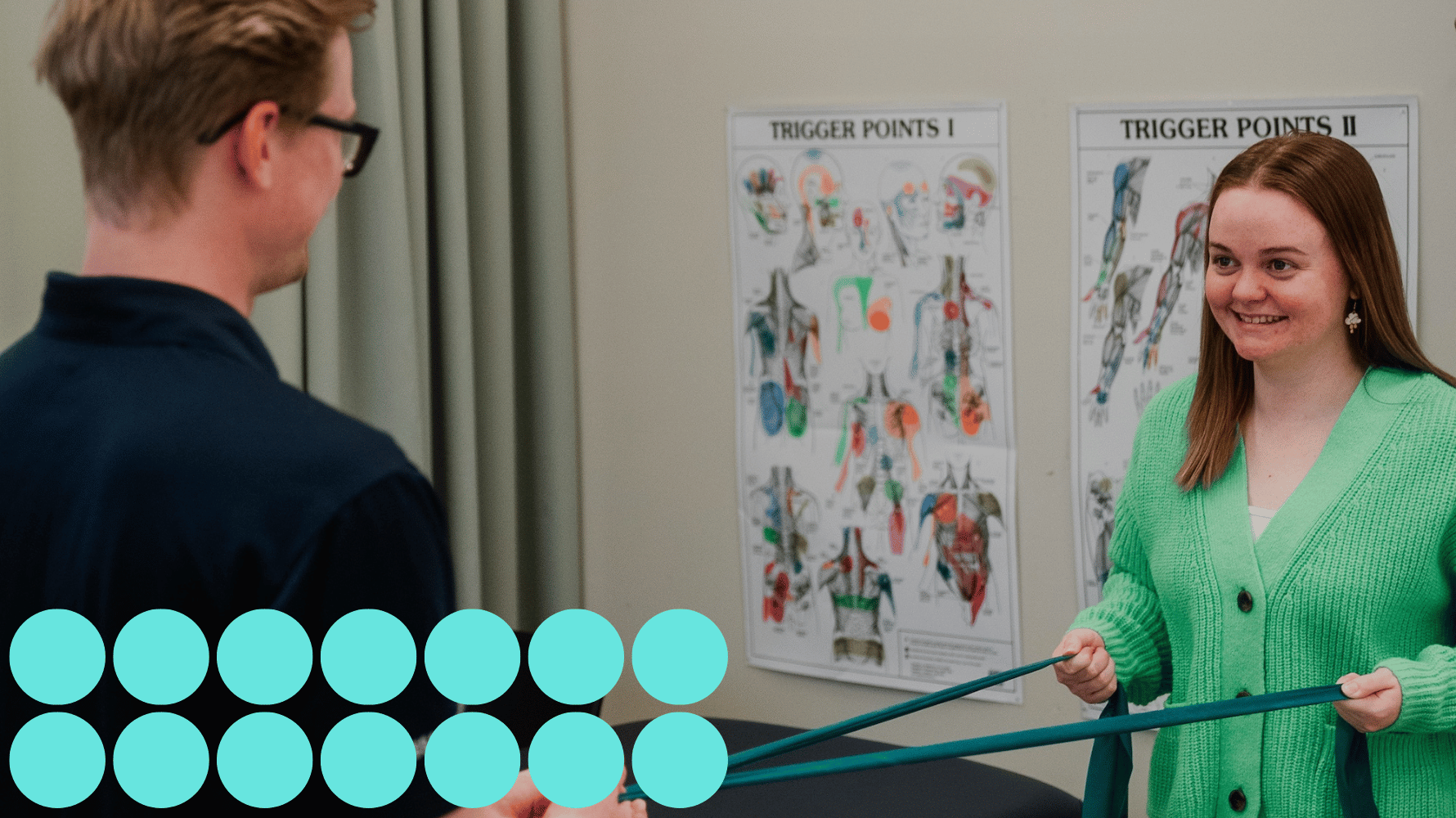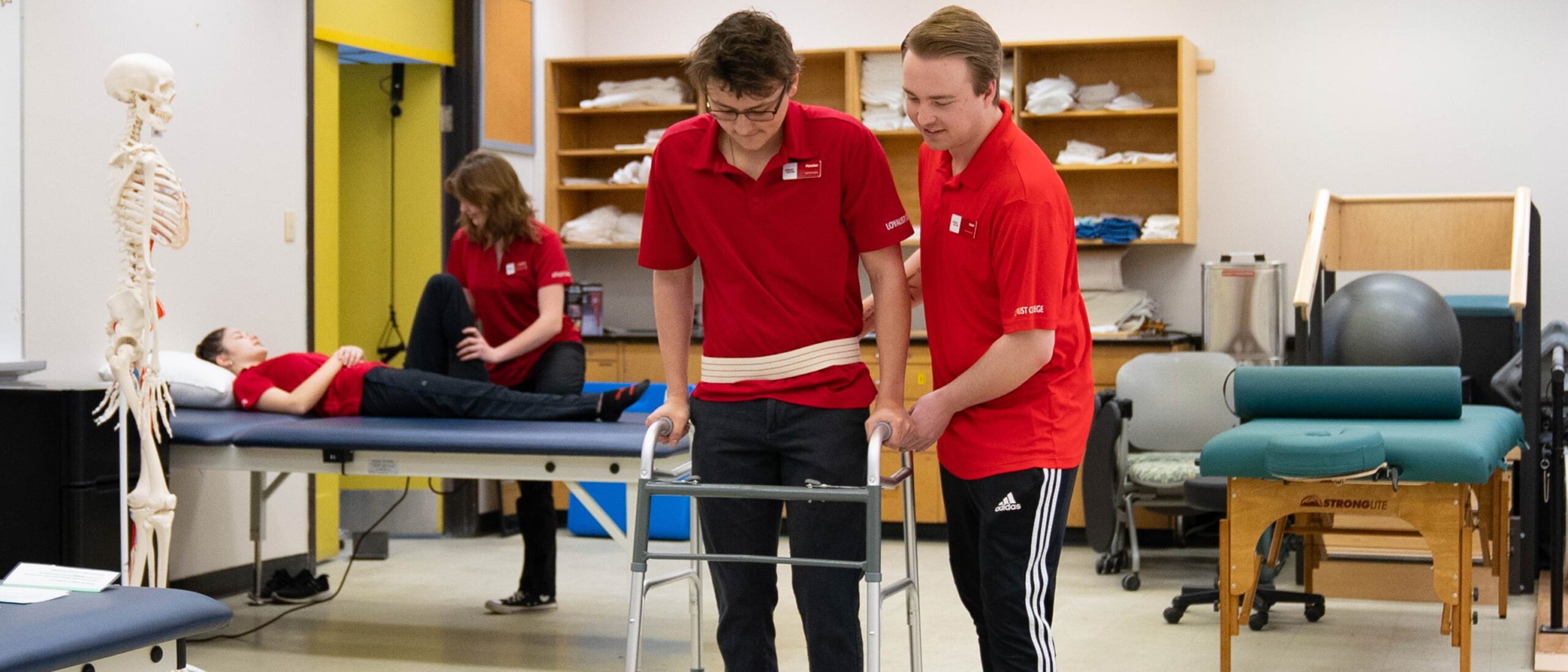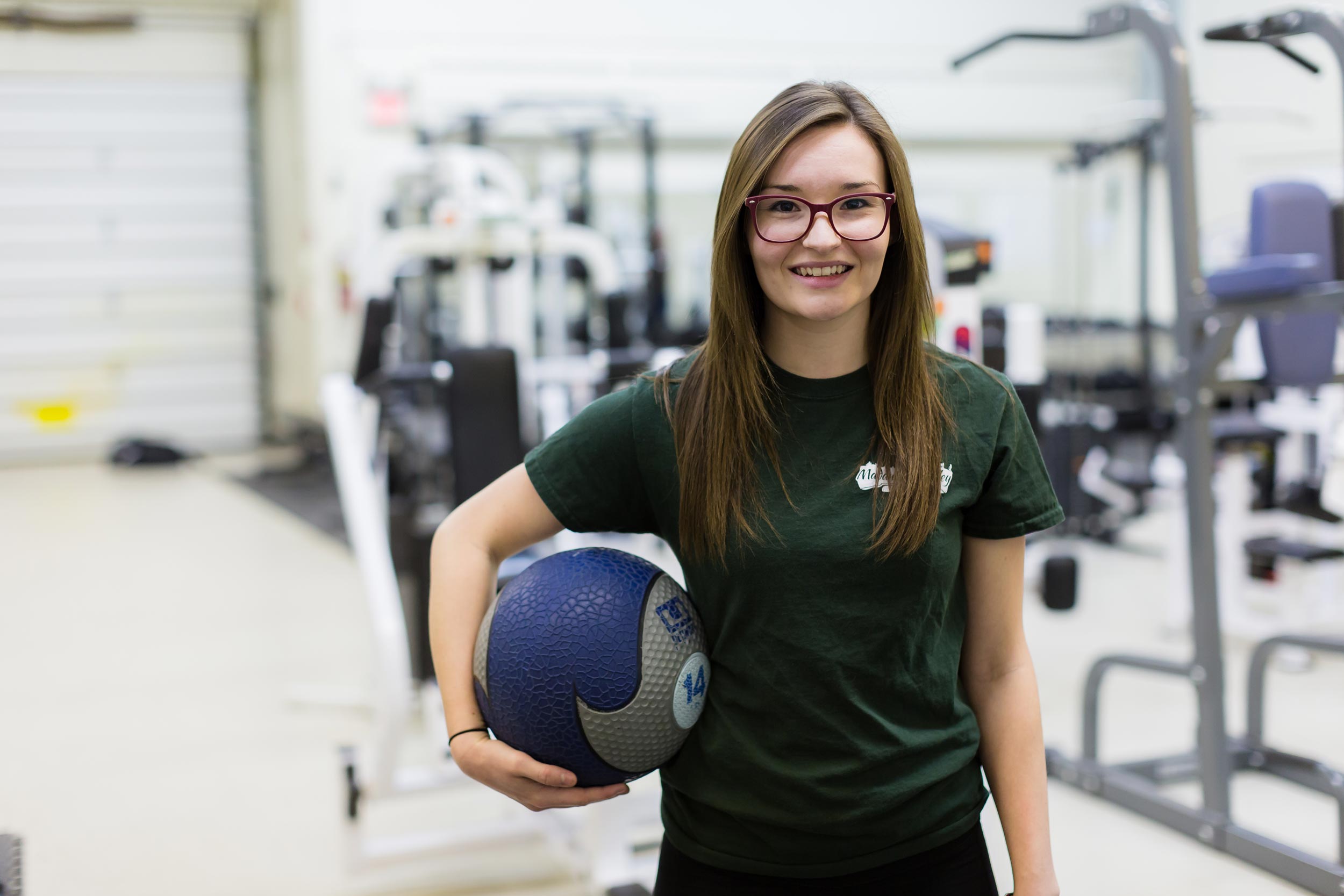Find your career
Prepare for a rewarding career working in a range of health and wellness industries:
- Massage therapy clinics
- Multidisciplinary health care organizations
- Private practice
- Chiropractic offices
- Hospitals & rehabilitation facilities
- Spas
- Health clubs
- Fitness centres
- Athletics organizations
- Long-term care facilities
- Tourism industry, including hotels and resorts
To practise as a Registered Massage Therapist in Ontario, graduates will be required to successfully complete entry-to-practice registration examinations and register with the College of Massage Therapists of Ontario (CMTO).

I liked the hands-on learning and the small class size leading to closer connection with the faculty. Small class sizes also means a more focused education.
Kennedy, Massage Therapy

